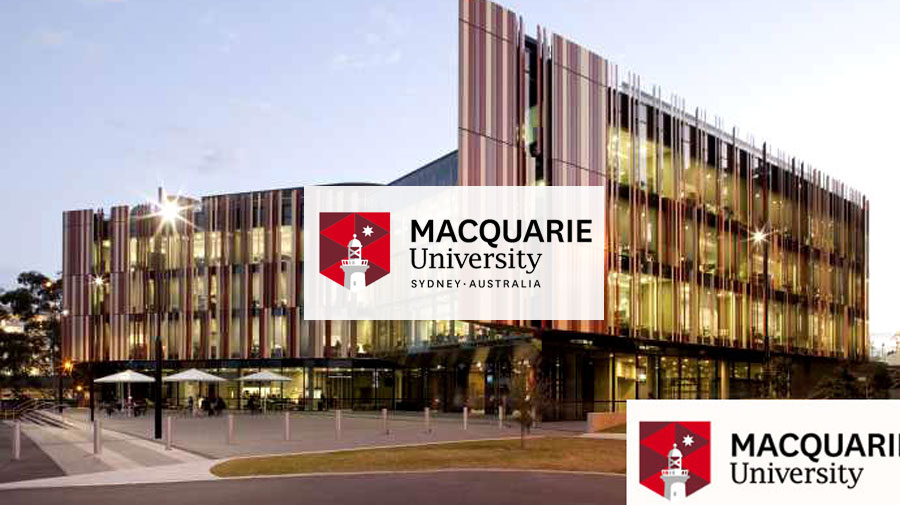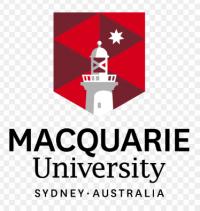Master of Engineering in Electronics Engineering
If it’s a smart device – phone, watch or TV – electronics engineers have played a role in its design, development and testing. Electronic circuits, microprocessors and controllers underpin most of the technologies that drive contemporary global industries, from manufacturing and power generation to transport, health, telecommunications and resource management. And as the world becomes increasingly connected, demand for highly skilled, visionary electronics engineers will only continue to grow.
This degree will consolidate, build on, and enhance the theoretical and practical grounding you gained in your undergraduate studies, and prepare you for a career as an electronics engineer. It will refine your technical and practical skills, and give you in-depth knowledge in both analogue and digital electronics.
KEY FEATURES
- You’ll gain an understanding of systems engineering – the process of designing a system, or components of a system, to meet desired needs within realistic constraints.
- You’ll develop a comprehensive, theory-based understanding of mathematics, computing and advanced electronic engineering, and you’ll learn how to apply that knowledge to contemporary research and development (R&D) problems in electronics and related fields.
- You’ll learn how to synthesise and apply established theories to the design, analysis, operation and performance of electrical components, circuits and electronic systems.
- You’ll have the opportunity to design, implement, test, deploy and consider the long-term maintenance of an electronic circuit or system that would typically be found in industrial R&D settings.
- You’ll study in state-of-the-art facilities, including our new cutting-edge engineering laboratories and learning spaces that have been purpose built for collaboration and cross-disciplinary learning.
- You’ll gain skills and training in areas that are sought after by employers, including project management, interpersonal communication, business practice, documentation, sustainability, product life cycle, social and ethical constraints and responsibilities.
- You’ll be taught by active researchers in this field, which means that cutting-edge research is integrated into the units they teach.
- This degree meets the Engineers Australia Stage 1 Professional Engineering competency standards.
- Your learning will be enhanced by our location in Australia’s largest high-tech precinct, which is brimming with collaborative, internship and employment opportunities.
Campus Information
North Ryde
Sydney New South Wales 2109 Australia
Intakes
- Feb
- July
Application Processing Time in Days: 7
Application Process
Minimum English Language Requirements
| English Level Description | IELTS (1.0 -9.0) | TOEFL IBT (0-120) | TOEFL CBT (0-300) | PTE (10-90) | |
|---|---|---|---|---|---|
| Expert | 9 | 120 | 297-300 | 86-90 | |
| Very Good | 8.5 | 115-119 | 280-293 | 83-86 | |
| Very Good | 8 | 110-114 | 270-280 | 79-83 | |
| Good | 7.5 | 102-109 | 253-267 | 73-79 | |
| Good | 7 | 94-101 | 240-253 | 65-73 | |
| Competent | 6.5 | 79-93 | 213-233 | 58-65 | |
| Competent | 6 | 60-78 | 170-210 | 50-58 | |
| Modest | 5.5 | 46-59 | 133-210 | 43-50 | |
| Modest | 5 | 35-45 | 107-133 | 36-43 | |
| Limited | 4 | 32-34 | 97-103 | 30-36 | |
| Extremely Limited | < 4 | < 31 | < 93 | < 30 |
Job Opportunity Potential
Studying hard and getting great marks doesn’t guarantee you a job. Most employers expect applicants to be skilled and experienced in the workplace. Working while you study is an excellent way to build your employability skills and gain life experience.
Why does it?
Employers appreciate any full-time, casual or part-time experience like working in hospitality or retail, on a reception desk, or even in construction. They value this kind of experience because it shows that you can be responsible and professional. Working while you study builds professional skills that are essential for professional roles:
- Time management
- Teamwork
- Customer service
- Attention to detail
- Working independently
- Showing initiative
- Communication (verbal and written)
Working on and off-campus
CareerHub is Macquarie’s jobs portal, connecting you with external organizations that offer part-time, casual, full-time employment opportunities as well as internships, cadetships, and volunteer experience.
Finding an on-campus job is often ideal as it centralizes both study and work, but opportunities on-campus are limited. Opportunities can be found here:
- Campus Life manages the university's Sport and Aquatic Centre, Food and Shopping, Children's Services, Event Planning, and more.
- For other administrative, professional, and academic-related opportunities within departments and faculties, visit the university's employment page.
Here is a list of some of our favorite job search websites for opportunities across multiple industries.
PSW Opportunity
2 Years
Admission Requirement / Eligibility Criteria
Entry requirements for Masters (by Coursework) programs at Macquarie University are set out in Coursefinder.
In general, entry requires a Bachelor degree from a recognised institution considered equivalent to an Australian bachelor degree (Level 7 on the Australian Qualifications Framework). Some courses may require previous study or work experience in a related area, a higher level qualification such as an Honours Bachelor (AQF Level 8), or other additional entry criteria that must be satisfied.
Requirements for entry
Courses may state a Weighted Average Mark (WAM) requirement, which is a reflection of your overall performance in your previous qualification.
The document below provides indicative equivalencies for Macquarie's WAM system against grading schemes used in 28 different countries - this includes the minimum Pass standard considered for entry to programs with no specified WAM:
To apply for a Masters (by Research) or PhD program, you should be able to demonstrate research experience in your previous studies. Please refer to the Higher Degree Research
IELTS Academic
Level of English Overall Reading Writing Listening Speaking For Admission To
Functional 5.5 5.0 5.0 5.0 5.0 Standard Foundation Program
Vocational 6.0 5.5 5.5 5.5 5.5 Intensive Program, Undergraduate Certificates, or Diplomas
Competent 6.5 6.0 6.0 6.0 6.0 Most undergraduate or postgraduate courses
Proficient 7.0 6.0 6.0 6.0 6.0 Master of Business Administration
Global Master of Business Administration
Graduate Certificate of Business Administration
Graduate Certificate of Editing and Electronic Publishing
Graduate Certificate of Global Business Practice
Graduate Diploma of Business Administration
7.0 6.5 6.5 6.5 6.5 Bachelor of Clinical Science
Bachelor of Exercise and Sports Science
Bachelor of Laws
Juris Doctor
Master of Creative Writing
7.0 7.0 7.0 7.0 7.0 Doctor of Medicine
Doctor of Physiotherapy
Master of Clinical Audiology
Master of Clinical Neuropsychology
Master of Clinical Psychology
Master of Organisational Psychology
Master of Professional Psychology
Master of Speech and Language Pathology
Graduate Certificate of Early Childhood
Advanced 7.5 7.0 7.0 8.0 8.0 Bachelor of Arts and Bachelor of Education (Primary)
Bachelor of Arts and Bachelor of Education (Secondary)
Bachelor of Commerce and Bachelor of Education (Secondary)
Bachelor of Education (Primary) and Bachelor of Psychology
Bachelor of Science and Bachelor of Education (Secondary)
Bachelor of Teaching (Early Childhood Education)
Master of Inclusive and Special Education
Master of Teaching (Birth to Five Years)
Master of Teaching (Primary)
Master of Teaching (Secondary)
Graduate Certificate of Inclusive and Special Education
Graduate Diploma of Inclusive and Special Education
- Course Code: 099163G
- Course Type: Full Time
- Course Level: Masters/PG Degree
- Duration: 01 Year
-
Total Tuition Fee:
43200 AUD
Annual Cost of Living: 24505 AUD
Application Fee: N/A
Similar Programs
- Master of Engineering (Professional) in Civil and Construction Engineering at Macquarie University (MQU)
- Master of Cyber Security Analysis and Master of Security and Strategic Studies at Macquarie University (MQU)
- Master of Cyber Security Analysis and Master of Intelligence at Macquarie University (MQU)
- Master of Information Technology in Internet of Things at Macquarie University (MQU)
- Master of Cyber Security Analysis at Macquarie University (MQU)
- Master of Cyber Security Analysis at Macquarie University (MQU)

